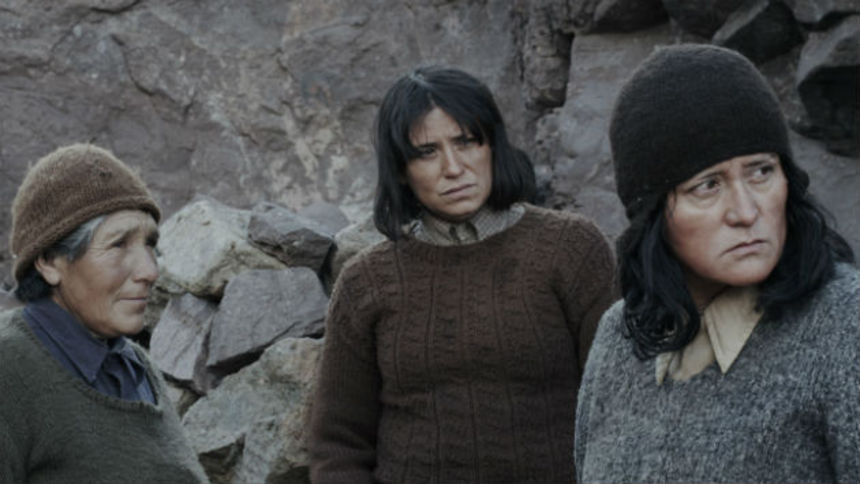Review: Great Performances And A Gritty Ending Make THE QUISPE GIRLS A Must See

One of the most anticipated Chilean movies of last year was this particular approach and almost austere way of film-making that was The Quispe Girls, but no film festival in Chile managed to snag it in 2013. Being selected in some major international festivals, any fanatic of Latin American cinema would salivate at the mention of the title, but we Chileans had to wait until 2014 to see it in a theatrical run.
Based on a real story, the film follows three sisters, Justa, Lucía and Luciana Quispe, who live in the outbacks in the north of Chile, in the middle of the desert. They make goat cheese and herd their cattle through the mountains and under the scalding sun. Their life is simple and austere, they have no animus of visiting the nearby town or civilization.
The last time they visited was so they could get identity papers, a few years ago, and since they were ridiculed due to the way that they looked or acted, they don't want to live there, even if slowly they start to realize that they are more alone than ever. The people who also live in huts or caves in the desert start to disappear, and they hear rumors that the police are going after anyone who holds cattle, and kills it.
It's no surprise that the film only has one time reference: it's 1974, one year after the coup d'ètat that installed the military government that killed and then made disappear thousands of Chileans who didn't agree with what they were doing. Thus, the events that surround the sisters become important for those who are actually in the know of what happened, something that isn't said in the film.
The sisters interact with few people, an old man who wanders around exchanging clothes for cattle, and a young communist that is escaping the police trying to pass to Argentina through the Andes. They all give them a glimpse into what is happening outside, and at the same time it gives us a comprehensive guide of how they act and what they believe in and how much they care about the outside world.
The acting of this movie is just spectacular. Even though there are some audio issues, specially regarding the understanding of what they say, it shouldn't be a problem to English-speaking watchers that will surely read the subtitles and understand every word they're saying. Catalina Saavedra (The Maid, Sundance winner), Francisca Gavilán (Violeta Went to Heaven, Sundance winner) and Digna Quispe (a cousin of the original three Quispe sisters) make the film come alive through their voices, looks and how they silently read their situation.
The film manages to make you understand and at the same time surprise you with its dread-filled ending, with its surprising twist, but at the same time making you understand why they do what they end up doing. The final shot may be one of the most well composed and at the same time the only one that could be called truly different in the entire movie: it's the only one with any kind of movement associated to it.
The cinematography makes the beautiful landscape pop out, but it never manages to overshadow the story (as minimal as it is) or the performances of the actors, its serviceable as it mirrors the elements of the real story, as it's filmed where the original events took place, but it never is a sight that would make you forget the slow build up and tension that the director and editor creates.
It's already one of the best Chilean movies released this year, and it's one that will be talked about in decades to come, a good debut from first-time fiction filmmaker Sebastián Sepúlveda.
Las Ni�as Quispe
Director(s)
- Sebastián Sepúlveda
Writer(s)
- Sebastián Sepúlveda
Cast
- Alfredo Castro
- Francisca Gavilán
- Digna Quispe
- Catalina Saavedra







